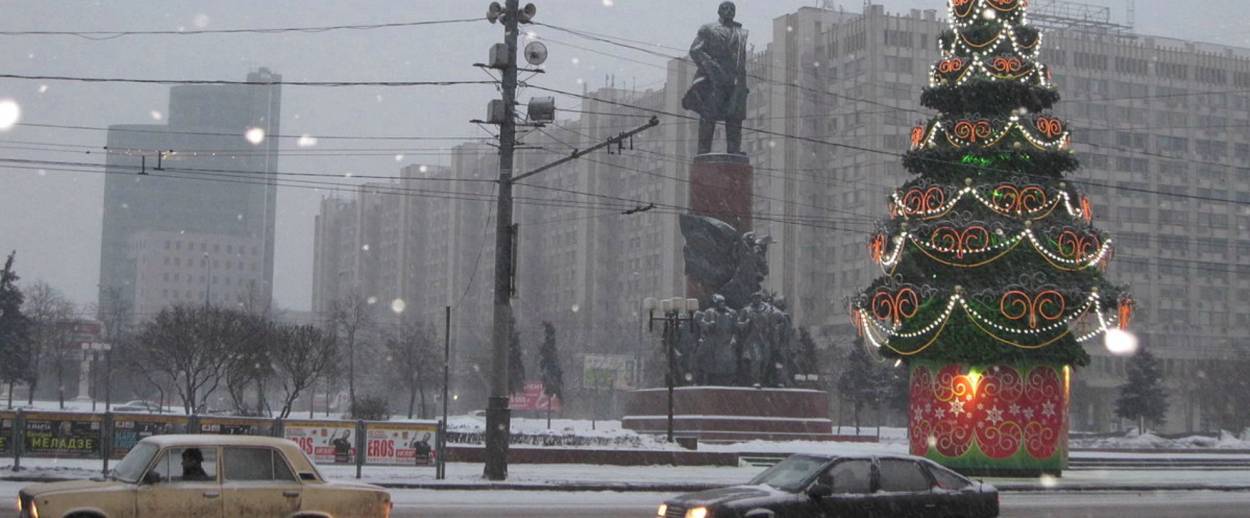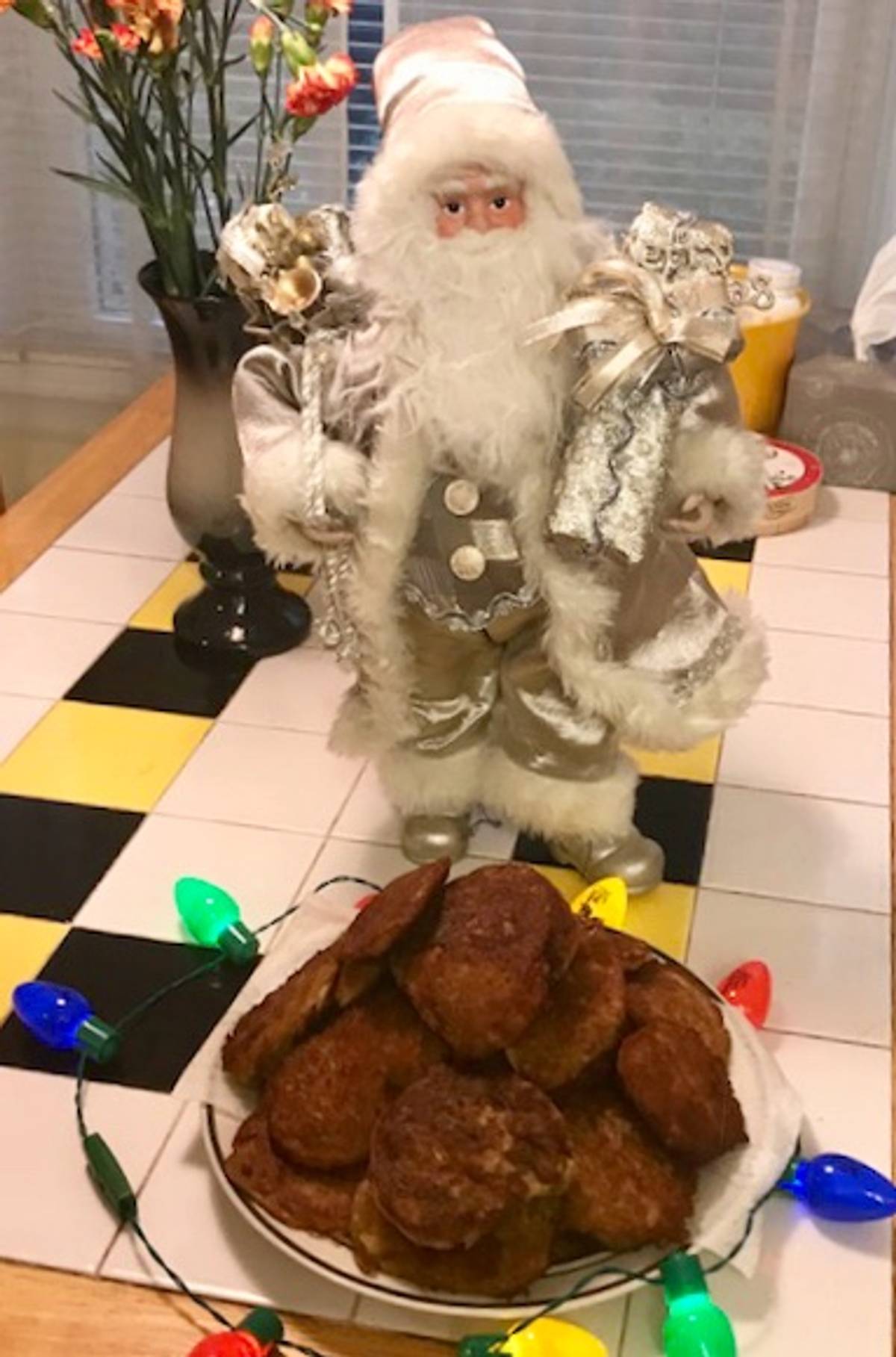A Soviet Jewish Front in the War on Christmas
Russian Jews used Christmas trees as weapons to fight back against the Kremlin’s war on religion




Like many Jews I know, I’m ashamed of my Christmas tree even though I look forward to it every year. I love Christmas but it doesn’t make sense. Celebrating the birth of a Jew long ago with only a vocational education is hard to justify. Even the biggest schmuck I grew up with is a cardiologist today, for Christ’s sake. But there are many others with my problem, and as a Jew who found asylum in America from Soviet Communism, I have good news for my Chosen brethren who succumb to mistletoe, Santa Claus and Charles Dickens—there may be something noble in our heresy.
As our living memory of the Cold War recedes, fewer and fewer people will know that putting up a tree was once a blow struck against the Communist Party. The dissident, Jewish refuseniks of the 1960s and ’70s had a noble reason to put up Christmas trees. They were fighting against totalitarian oppression. Celebrating Christmas was an act of resistance to the Soviet attacks on religious faith and rewriting of history. The Kremlin waged a war on Christmas and, with Hanukkah forbidden and largely unknown to the Soviet Union’s secular Jews, Christmas was the next best thing in their arsenal to fight back.
The Soviet war on Christmas was waged with midnight mass arrests, censored season’s greetings and sanctioned Santas. Judging by the deeply pious celebration of the holiday in contemporary Russia, the battles fought by the Soviet Union every December from 1917 to 1991 did not succeed. Christmas won, but for my family and countless similar ones, it wasn’t obvious that it would, even 25 years after Stalin’s death.
Much of what the 1917 revolution targeted for disposal turned out to be necessary. Marx got a lot wrong, and the millions who starved to death (in the 20th century!) were the collateral damage of his errors. Moscow had to rejigger its rules to secure the allegiance of a people literally dying from Communism. Lenin’s monstrous successor even reinstated Russian nationalism, once banished in favor of globalist socialism, when it was necessary to resist the German invasion of 1941. Of the many societal changes imposed on the people by revolutionaries, the official, state-sanctioned atheism was one of the least popular. In the 1930s this became obvious and internationally embarrassing when Russian believers proved willing to die for their faith; something had to be done. The Kremlin ideologues couldn’t go as far as reopening churches, some of which they’d turned into horse stables, but in 1935 ‘New Year’s trees’ were permitted and ‘Father Winter’ came down chimneys again, albeit a week after he used to. Turkey and Vietnam also adopted ‘New Year’s trees’ for political reasons. Mutating Christmas into New Year’s fooled no one and offended many, and Hanukkah was suppressed ruthlessly along with all of the other Jewish holidays.
Cold War Jews resisted totalitarian atheism with Christmas trees, putting them up earlier than New Years in an act of defiance. Each year my family cut a tree down in the woods and brought it home on the tram. They decorated it with handmade ornaments made of egg-shells, candy wrapper foils and humanoid chestnuts with matchstick limbs. My grandfather, despite his shtetl roots, read the story of Christ’s birth from the Gospel on Christmas Eve. The neighbors in the shared apartment clucked in disapproval, fearing the KGB’s wrath, but no one snitched. Everyone resented the state’s intrusion. Forbidding one to have a relationship with God while insisting that the Communist Party and Father Winter were good enough pleased no one. Of all the countries behind the Iron Curtain, Russia had the particular problem of a large Jewish population supported by Israel and the United States. Harassing the Jews less than 30 years after the Holocaust was difficult to do, as it gave the West excellent propaganda. Jewish dissidents like Joseph Brodsky were put into insane asylums rather than camps or graves. Brezhnev’s solution was to let the Jews leave, which proved quite beneficial for the nation that received the Jewish refuseniks. My family of five went with the equivalent of $90 dollars each, the summation of a lifetime of work, and were happy to do so.
Hasidic Jews helped my family when we received American asylum in 1977. Soon after arriving with the help of our ultra-pious Jewish co-religionists we relished our first free Christmas in the West. They did not see it that way. The cheap tree my father and uncle smuggled a cheap tree dressed in an overcoat back to our Borough Park apartment under the watch of the local Lubavitchers. The disguise made it look like a crime in process, and that’s likely how our neighbors would have viewed it. Picking the right side in the Christmas conflict was obvious in Russia. Upon escaping the officially atheist state—that nevertheless managed to be anti-Semitic— things got complicated. We moved out to a secular neighborhood soon after the Christmas tree caper.
Every year I put up a Christmas tree, and every year I feel guilty about the beautiful artifact of Victorian tradition. My family talks about how hard it was to get a tree, to get lights, to get anything related to religion in the Soviet Union. The New Testament my grandfather read from was bought for two weeks wages on a park bench from a guy who also trafficked in Solzhenitsyn, jeans, and Nabokov. American Jews who try to sell us on Hanukkah as the more appropriate celebration for the season just don’t understand that we have no experience with the holiday. Russian menorahs were melted into bullets back when there was a White Guard to fight; after the Wall fell the Jews of Russia had to learn how to be who they are all over again. Watching Seinfeld helped.
This year I fried a thousand latkes to soothe my conscience and feed my wife. Christmas trees are beautiful, but we have better reasons for putting them up. I love the holiday and find the event that it commemorates to be magical, without believing in any of it.

The number of Russian Orthodox priests executed or sentenced to die in Arctic labor camps for conducting a Christmas mass will never be known more precisely than ‘way too many’. Rabbis and Imams were treated no better. Even passively hearing the Shma or the Muezzin or a mass was enough to put you away. And yet the people resisted. Soviet Muslims quietly fasted on Ramadan, Christians did so during Lent, and we knew what a Seder looked like even if we didn’t have the texts of a Haggadah to recite.
The shabby trees of the past were our way of saying that Father Winter didn’t pass muster; my grandfather read the Christian gospel because he claimed his human right to have a relationship with God. Just because it was the wrong religion didn’t mean it was wrong; the intention was there. Whether it was expressed in the candles of a menorah or the ones perilously perched on a tree didn’t matter to us or the KGB. They burned bright, like the divine spark in each of us, and even Brezhnev couldn’t blow them out.
Daniel Genis is a writer, journalist, and ex-con living in Brooklyn with his wife. His memoir of a decade behind bars will be released by Penguin next year.